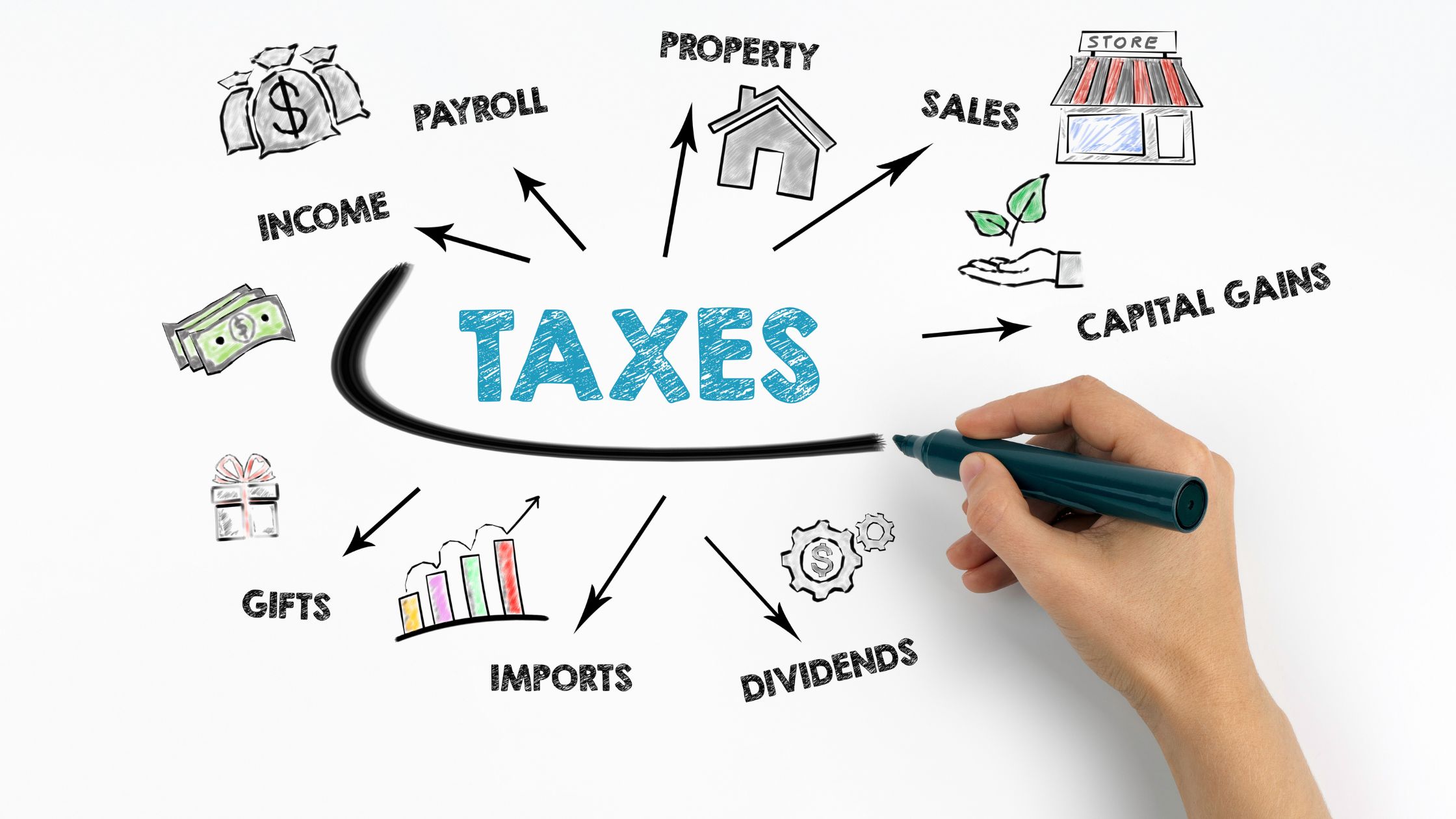This comprehensive guide explores legitimate tax planning methods that can help minimize your tax liability while remaining fully compliant with Nigerian tax laws.
Tax Planning vs. Tax Avoidance vs. Tax Evasion
Before exploring specific strategies, it’s crucial to understand the distinction between different approaches to managing tax obligations:
Tax Planning is a legal and ethical approach to organizing your financial affairs to minimize tax liabilities by utilizing available deductions, credits,and exemptions within the framework of the law. The Nigerian Supreme Court, in the case of G.M. Akinsete Syndicate v Senior Inspector of Taxes, Akure, affirmed that individuals are entitled to use lawful means to reduce their tax obligations.
This matches a 1929 landmark ruling in the English case of Ayrshire Pullman Motor Services v IRC. Lord Clyde famously stated the legal position around tax planning namely: ‘No man in this country is under the smallest obligation, moral or other, so to arrange his legal relations to his business or to his property as to enable the Inland Revenue to put the largest possible shovel into his stores. The Inland Revenue is not slow – and quite rightly – to take every advantage which is open to it under the taxing statutes for the purpose of depleting the taxpayer’s pocket. And the taxpayer is, in like manner, entitled to be astute to prevent, so far as he honestly can, the depletion of his means by the Inland Revenue.’
This makes tax planning legal and practised globally, including in Nigeria.
Tax Avoidance, while legal, involves strategically restructuring financial affairs to minimize tax liabilities in ways that may circumvent the spirit of the law, even if they comply with its letter.
Tax Evasion refers to illegal practices such as underreporting income or inflating deductions and is a criminal offense with severe penalties.
At Taxpal, we focus exclusively on legitimate tax planning strategies that keep you on the right side of the law while optimizing your tax position.

Strategy 1: Leverage Tax-Exempt Income
Nigerian tax law exempts certain types of income from taxation. This provides significant opportunities for tax planning:
Pension Contributions and Gratuities: Contributions to approved pension schemes are tax-deductible, and gratuities paid upon retirement are tax-exempt under the Personal Income Tax Act (PITA).
Government Securities: Income from federal, state, or local government bonds is exempt from Personal Income Tax (PIT) and Company Income Tax (CIT).
Small Business Dividend Exemptions: Under the Companies Income Tax Act (CITA), dividends from small companies in manufacturing, agriculture, or wholly export-oriented businesses may be exempt for the first five years.
Expense Reimbursements: Properly documented reimbursements for work-related expenses, such as travel allowances, are not taxable.
Strategy 2: Maximize Available Deductions and Allowances
One of the most effective strategies for tax planning is to claim all eligible deductions and allowances:
Consolidated Relief Allowance (CRA): Every taxpayer is entitled to a relief of ₦200,000 or 1% of gross income (whichever is higher) plus 20% of gross income. The Finance Act 2020 redefined gross income as gross emoluments minus all statutory reliefs, further reducing taxable income.
Life Insurance Premiums: Premiums paid for life insurance policies for yourself or your spouse are tax-deductible. This serves dual purposes—providing financial protection for your beneficiaries and reducing your tax liability.
National Housing Fund (NHF) Contributions: The mandatory 2.5% contribution of an employee’s monthly basic salary to the NHF is tax-deductible. This not only reduces PAYE tax but also gives contributors access to low-interest housing loans.
National Health Insurance Scheme (NHIS): Employee contributions to NHIS (5% of basic salary) are non-taxable. Participation provides essential healthcare access while simultaneously reducing tax burdens.
Business Expenses: For business owners, expenses that are “wholly, exclusively, necessarily, and reasonably” incurred in generating income are deductible. These include rent, salaries, utilities and maintenance costs.

Strategy 3: Optimize Your Business Structure
The legal structure of your business significantly impacts your tax obligations:
Sole Proprietorship vs. Limited Liability Company: Sole proprietors are taxed under PIT, which can have lower rates for small incomes but fewer available deductions. Companies under CIT can claim more expenses but face a flat 30% rate (20% for smaller companies).
Partnerships: Income from partnerships is taxed at the individual partner level, potentially reducing overall tax liability if partners fall into lower tax brackets.
Group Structures: Larger businesses can create subsidiaries to allocate profits strategically, taking advantage of lower tax rates or incentives in specific sectors.
Strategy 4: Take Advantage of Business Tax Incentives
Nigeria offers several tax incentives to encourage investment in specific sectors:
Pioneer Status Incentive (PSI): Companies in designated “pioneer industries” such as agriculture, solid minerals, or manufacturing can enjoy a tax holiday for up to five years.
Export Processing Zones (EPZs): Businesses operating in EPZs or Free Trade Zones enjoy exemptions from CIT, VAT and customs duties.
Rural Investment Allowance: Companies operating in areas without basic infrastructure can claim allowances of up to 100% of infrastructure costs.
Research and Development (R&D) Allowance: Up to 120% of R&D expenses are deductible for qualifying companies.

Strategy 5: Strategic Planning for Capital Gains
Capital Gains Tax (CGT) is only triggered when you dispose of an asset, so timing these transactions strategically can minimize your liability:
Defer Sales: Consider delaying the sale of assets until a year when your income is lower to reduce your overall tax burden.
Utilize Exemptions: Gains from the sale of your primary residence or shares listed on the Nigerian Stock Exchange are exempt from CGT.
Offset Losses: Use losses from other asset sales to offset taxable gains, reducing your CGT liability.
Strategy 6: Increase Pension Contributions
The Pension Act requires employers with at least 15 employees to participate in a contributory pension scheme, with a minimum contribution of 18% of monthly pay (10% by the employer and 8% by the employee).
Consider making Additional Voluntary Contributions (AVC) to your pension fund. This is a tax-efficient method of boosting retirement savings while reducing current taxable income.
Some organizations apply pension calculations to an employee’s entire income rather than just basic salary, housing and transportation allowances. While this increases the employer’s contribution, it also significantly reduces the employee’s taxable income.
Strategy 7: Utilize Withholding Tax Credits
Withholding Tax (WHT) is deducted at source on transactions like dividends, interest, and royalties. These deductions can be credited against your final tax liability. This can help prevent double taxation.
Properly document all WHT deductions with receipts or credit notes. When filing your tax returns, claim these credits to reduce your payable tax.
Ensure Timely Compliance and Accurate Filing
Late filing or underreporting can lead to penalties, audits, or disallowed deductions. Tax authorities are increasingly leveraging technology to track compliance:
Meet Deadlines: Personal income tax returns are due by March 31, while company returns are due six months after the fiscal year-end.
Maintain Records: Keep meticulous documentation of all financial transactions, contributions, and expenses to support claimed deductions.
Use Available Technology: Platforms like the Federal Inland Revenue Service’s (FIRS) TaxPro Max can simplify filing and ensure compliance.

Stay Informed About Tax Reforms
Nigeria’s tax laws are continually evolving. President Tinubu’s New Tax Bills have been passed by the Senate. It remains a few more readings and the president would sign them into law.
Tax Identification Numbers (TIN): The amended Section 49(1) of the Personal Income Tax Act requires individuals and businesses to provide a TIN as a condition for opening or maintaining business bank accounts.
Stricter Penalties: The Finance Act 2020 imposes more stringent penalties for non-compliance with tax registration requirements.
VAT Changes: The Value Added Tax Act has expanded the definition of goods to include incorporeal properties such as rights, patents and trademarks.
Conclusion
Minimizing your tax liability in Nigeria requires a proactive, informed tax planning approach that leverages exemptions, maximizes deductions, utilizes incentives to optimize your financial structure. By implementing these strategies while remaining fully compliant with tax laws, you can significantly reduce your tax burden and reinvest those savings into personal or business growth.
Need Expert Guidance on Tax Planning?
Navigating Nigeria’s complex tax landscape can be challenging without professional assistance. At Taxpal, our team of experienced tax consultants specializes in developing customized tax planning strategies that maximize your savings while ensuring full compliance with Nigerian tax laws.
Don’t leave money on the table through missed deductions or overlooked exemptions. Contact Taxpal today for a comprehensive tax assessment and discover how our strategic tax planning services can help you legally minimize your tax liability while avoiding costly penalties and audits.
